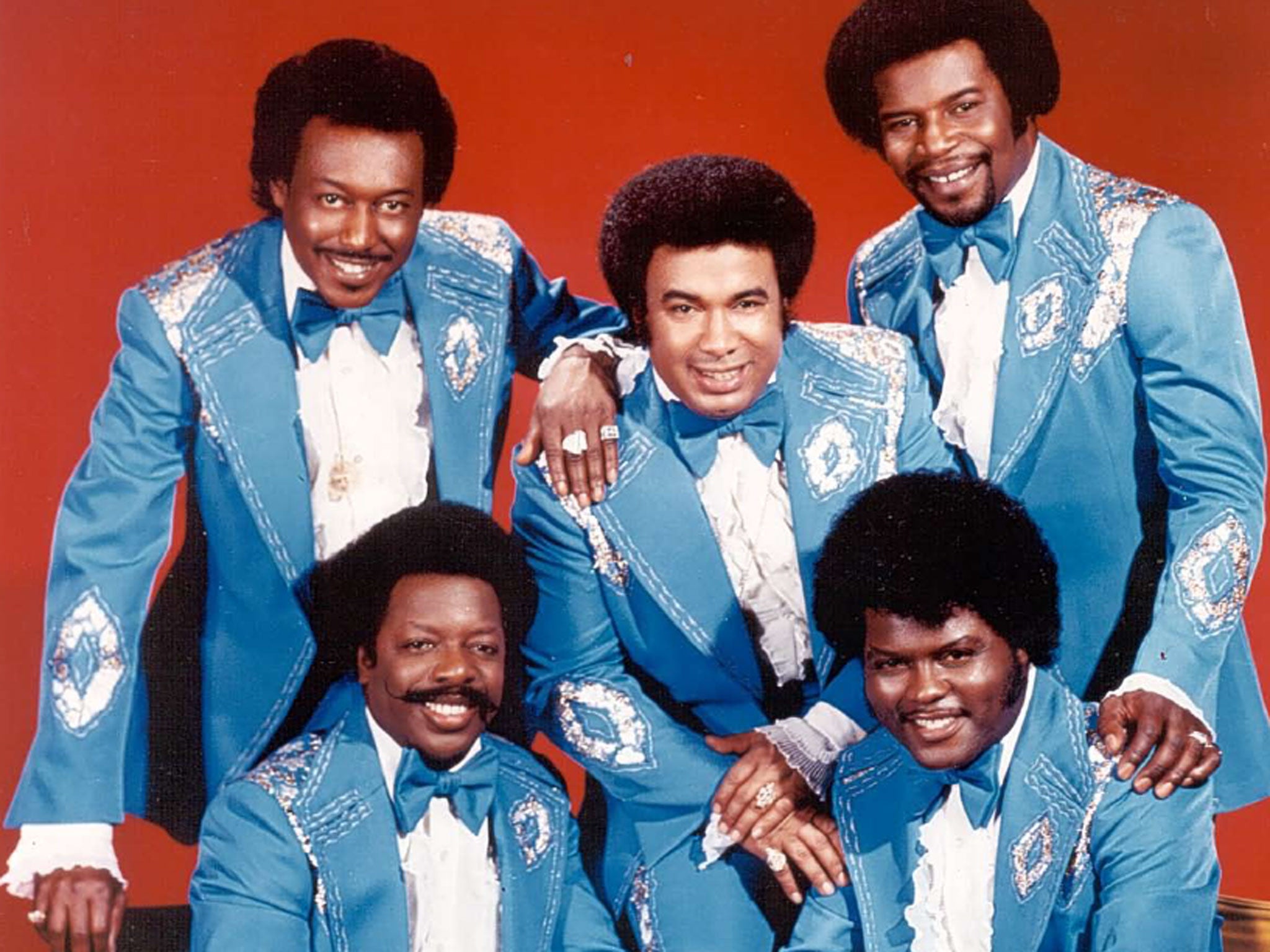Bobbie Smith: Singer whose smooth tenor graced the sweet soul of the Detroit Spinners
For all their hits, they were below the Four Tops and the Temptations in the Motown pecking order

Bobbie Smith was the co-lead vocalist of the Detroit Spinners and a mainstay of the soul group from their inception in the doo-wop era of the mid-1950s to their recent incarnation on the nostalgia circuit. In their heyday they scored 10 UK hits between 1970 and 1980.
Smith's smooth tenor was best heard on “I'll Be Around”, “Could It Be I'm Falling In Love” and “(They Just Can't Stop It The) Games People Play”, the three R&B chart-toppers produced by the Philly soul specialist Thom Bell while they were signed to Atlantic, as well as their collaboration with Dionne Warwick on “Then Came You”, a US No 1 in 1974, but he also shared lead vocals with fellow Spinner Philippe Wynne on two more R&B No 1s, “One Of A Kind (Love Affair)” and “Mighty Love (Part 1)”.
Born in Georgia in 1936, he grew up near Detroit and began singing in his teens at the height of the doo-wop craze. In 1956 he teamed up with fellow Ferndale High School students Henry Fambrough (baritone), Billy Henderson (tenor), Pervis Jackson (bass) and CP Spencer (tenor), who was soon replaced by George Dixon. Calling themselves the Domingoes, they idolised the Moonglows, the Cleveland vocal group led by Harvey Fuqua, whom they met after he moved to Detroit in 1960 to work first with Anna, and then with Gwen Gordy, the sisters of Motown founder Berry Gordy Jr.
Fuqua became their manager and insisted on a name change, prompting car enthusiast Smith to suggest The Spinners after the chrome hubcaps people used to stick on their front wheels. In 1961 Smith sang the gorgeous lead on the group's debut 45, “That's What Girls Are Made For”, written by Fuqua and Gwen Gordy, who had by then married and launched their own label, Tri-Phi Records, with its release.
Featuring a young Marvin Gaye on drums, the single crossed over from the R&B to the pop charts and reached the US Top 30, but the follow-up, “Love (I'm So Glad) I Found You”, proved only a minor hit and the Spinners languished even after Berry Gordy took over Tri-Phi in 1964.
Smith again excelled on “I'll Always Love You”, which made the Top 40 in the US in 1965, but the group found themselves way below the Temptations and the Four Tops in the Motown pecking order. “The staff writers and producers could choose who they wanted to work with,” Smith told Blues & Soul in 2009. “Naturally, they'd give their best songs to the guys who were hot at the time. It was always like we were starting over.”
Consequently, the Spinners spent much of their time doing odd jobs around Motown, with Smith chauffeuring the Temptations and Martha Reeves & The Vandellas on tour. However, they also honed their harmonies and stage craft and developed an act which included impersonations of their label mates – “even the Supremes!” he recalled – as well as the Beatles, and earned them a support slot with Stevie Wonder in 1969. “Because we got to be really close friends, he decided to produce a song on us, which became 'It's A Shame',” said Smith of their first British hit. To avoid confusion with the Liverpudlian folk group the Spinners, they were billed as the Motown Spinners, before becoming the Detroit Spinners in 1972.
By then, Wynne had replaced GC Cameron, who had sung lead on “It's A Shame”, and they followed Aretha Franklin's advice and moved to Atlantic. The architect of the sweet symphonic soul of the Delfonics and the Stylistics, Bell brought the Spinners to Sigma Sound Studios in Philadelphia and cut four tracks with them. Of those, “How Could I Let You Get Away”, a ballad, was issued as a single and became a substantial hit, but disc-jockeys soon switched their attention to its upbeat flip-side, “I'll Be Around”, and then the next release, “Could It Be I'm Falling In Love”, also from the same session, as was its B-side, “Just You And Me Baby”.
“Of those first four songs we did together, three of them became million-sellers,” Smith recalled. “We never looked back. Thom Bell enabled us to make everlasting music with positive lyrics.” Their fruitful partnership also encompassed the protest-soul smash “Ghetto Child” as well as “Wake Up Susan” and “The Rubberband Man”. In 1977 they also participated in the recording of “Are You Ready For Love?”, produced by Bell as a duet with Elton John, though the Spinners recorded their parts separately. Both acts released the track in 1979 but the Ashley Beedle remix which topped the British charts in 2003 downplayed their involvement.
The Spinners achieved their last two successes, with Smith and new co-lead vocalist John Edwards to the fore, when the disco producer Michael Zager hit on a new formula; he combined a Four Seasons cover and one of his compositions to create the medley “Working My Way Back To You/Forgive Me Girl”, a British No 1 in 1980, and repeated the trick with Sam Cooke's “Cupid/I've Loved You For A Long Time” a few months later.
In 1988 the Spinners performed at a concert held at Madison Square Garden to celebrate Atlantic Records' 40th anniversary. They returned to UK Top 30 in 1995 when Rappin' 4-Tay sampled “I'll Be Around”.
Smith's passing, due to complications from pneumonia and influenza, leaves Fambrough as the sole survivor from the Spinners original line-up.
Robert Smith, singer: born Abbeyville, Georgia 10 April 1936; married Lorraine (three sons, one daughter); died Orlando, Florida 16 March 2013.
Subscribe to Independent Premium to bookmark this article
Want to bookmark your favourite articles and stories to read or reference later? Start your Independent Premium subscription today.

Join our commenting forum
Join thought-provoking conversations, follow other Independent readers and see their replies